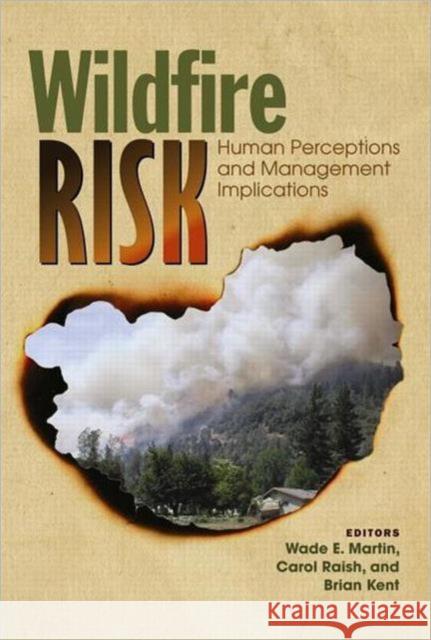Wildfire Risk: Human Perceptions and Management Implications » książka
Wildfire Risk: Human Perceptions and Management Implications
ISBN-13: 9781933115528 / Angielski / Miękka / 2007 / 324 str.
Wildfire Risk: Human Perceptions and Management Implications
ISBN-13: 9781933115528 / Angielski / Miękka / 2007 / 324 str.
(netto: 268,84 VAT: 5%)
Najniższa cena z 30 dni: 261,89
ok. 16-18 dni roboczych.
Darmowa dostawa!
Wildfire Risk follows from an increasing awareness among fire experts that relying on fire behavior models from the physical sciences to design a risk management program is no longer sufficient - and that simply increasing public knowledge related to wildfire hazard does not necessarily lead to appropriate risk reduction behaviors. Public land managers, property developers, landowners, and politicians must ask more about the social and psychological factors that motivate people to respond appropriately to risk. wildfire mitigation has been directed toward individuals rather than communities. Drawing heavily upon health and risk communication, the contributors highlight the ways that communities and individuals respond to wildfire risk. They discuss how outreach and education can influence community and individual behavior, and they explore differences among ethnic/racial groups and between genders with regard to values, views, and attitudes about wildfire risk and management. They explore the role of public participation in each stage of wildfire risk assessment and mitigation, as well as in planning for evacuation and recovery after fire. perspectives from the decision sciences, geography, operations research, psychology, experimental economics, and other social sciences.











